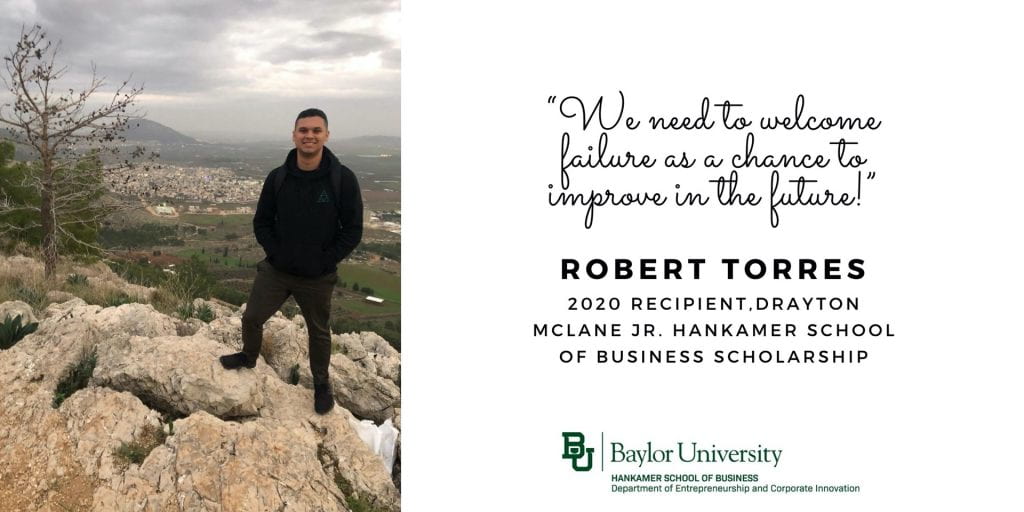
At the stroke of midnight, the ball dropped and 2020 was ushered in with promises of a fresh start and a new beginning. After all, 2020 is a once-a-century year when the first two digits of the year match the second two digits. This is something folks will only see once in a lifetime. That alone makes 2020 a year to remember.
And then there was COVID-19…
COVID-19 came in like a wrecking ball. Schools, businesses and churches all felt the sucker punch. Baylor University was no exception. Classes went online, dorms emptied, events were cancelled and engagement programs were put on an indefinite pause.
The Community Entrepreneurship Program (CEP), managed by the Baylor Entrepreneurship department, is one such program that felt the impact of COVID-19. CEP is a faith-based community entrepreneurship training program developed by Baylor University, hosted by local churches and facilitated by successful executives and entrepreneurs.
Participants in CEP are local, small business owners who simply want to grow their business. The program provides peer-to-peer networking and valuable mentorship, along with training and coaching. CEP utilizes Baylor Entrepreneurship faculty, staff, students, alumni and donors in delivering this best-in-class Baylor content in a non-threatening, caring environment that welcomes small business owners from all backgrounds.
Denitia Blount of locally owned and operated Oh My Juice is both a Baylor grad and a small-business owner who volunteers as a facilitator for the program. Blount spoke at a Confessions of an Entrepreneur event on campus in 2019 and she explained, “You don’t know what you don’t know.”
CEP helps small-business owners recognize what they don’t know in bi-weekly meetings, by providing support and one-on-one counseling in areas of accounting, finance and strategy. In March 2020 as COVID-19 hit, CEP was halfway through its Spring 2020 session (with record attendance and a diverse group of small businesses represented). The program was forced to go on an indefinite hiatus with respect to the regular meeting schedule.
Dr. Peter Klein, Entrepreneurship Department Chair, co wrote a recent article for the LSU Business Review with the sentiment that uncertain circumstances can give businesses an opportunity to improve. The article states that in the end it’s businesses, and not policymakers, that should decide how to best weather COVID-19.
The Entrepreneurship department, recognizing a strong need to pivot CEP to meet the needs of the small businesses facing life or death business scenarios, reconfigured the program to deliver real time, relevant strategy and information that played a major role in being able to keep a majority of these businesses in operation even through a shutdown.
Michael Wyatt of Wyatt Brothers Moving was a participant in the spring CEP class. He explained that while the goals for the business didn’t change with COVID-19, they were definitely adjusted. The company has implemented a more go with the flow outlook and adjusted goal timelines to account for some of the unforeseen circumstances.
Shaun Limbers, Associate Director for the Baugh Center, oversees CEP and personally feels it’s a privilege to serve the local, small businesses especially during this very difficult time. He says, “We truly believe Entrepreneurship can be transformative with an ability to positively impact our community both locally and worldwide.” He continues, “CEP is uniquely positioned to execute that vision on a local level.”
In the coming weeks, the Baylor Entrepreneurship department will wrap up the spring CEP class. CEP may look a little different going forward, but one thing that is for certain is Baylor Entrepreneurship will continue to walk side by side with local, small businesses.
For more information on Baylor Entrepreneurship, please visit our website at baylor.edu/business/entrepreneurship/.










